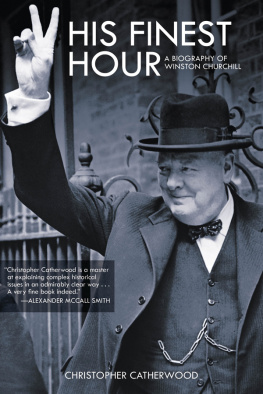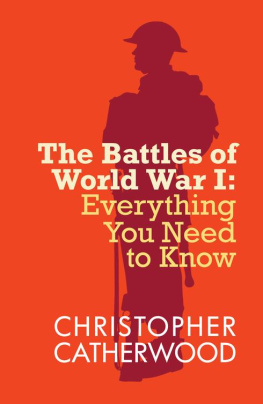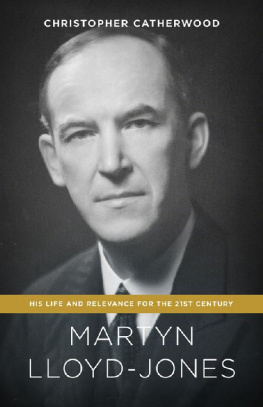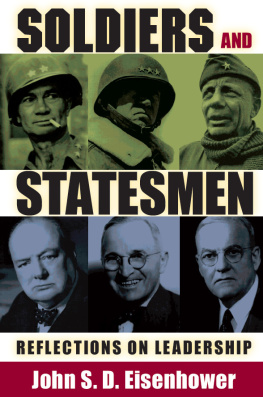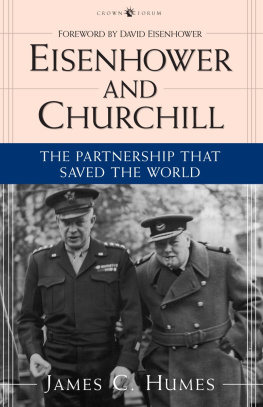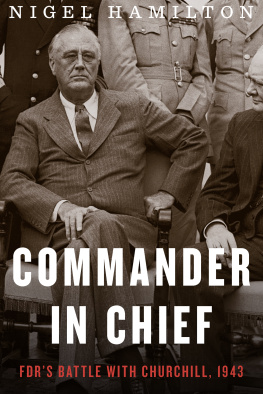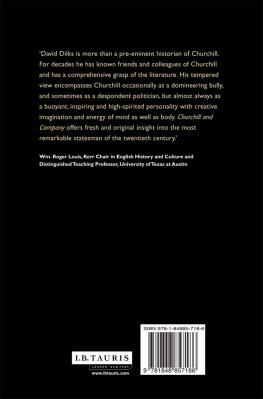THIS IS THE FIRST BOOK THAT HAS BEEN ALMOST ENTIRELY WRITTEN after the death of my wife, Paulette, in 2018. She and I embodied a special relationship of our own: I am British and Paulette was American, more specifically a Virginian. Ours was one of many years of wedded happiness, and so it was a special relationship of considerable success. She knew this book would be happening, and it is sad that she never lived long enough to see it in print.
My former literary agent, Eugene Brissie, enabled this book to happen when he became a coeditorial director at Lyons Press. He therefore deserves double gratitude, as do two literary friends in Britain, Andrew Hayward, formerly my publisher here in Britain and still a pillar of support, and Richard Reynolds, of Heffers bookshop in Cambridge, and the doyen of many literary prizes and awards. They kept the flame of this book alive during Paulettes final years. Thanks also to production editor Meredith Dias and copy editor Ann Seifert.
My mother, Elizabeth Catherwood, survived the blitz! She was evacuated from London only to return there in time for the V1 and V2 rockets to start hitting the capital. Aged ninety-three, she is happily very much with us still. In recent months my mother and I have been together in lockdown and my gratitude and warmth for my mother is as strong now as it was when I came into the world over sixty years ago. The generation that endured the war is unique and my mother is its embodiment.
Sadly no longer alive is Geoffrey Williams, whom I have succeeded as the Academic Director of the Wake Forest INSTEP programme here in Cambridge. He also survived the blitz, the V1 and the V2 and went on to become a successful professor embodying the special relationship in his decades of leadership of the INSTEP programme, in which American students from Wake Forest, Villanova, Tulane, Spelman, and other excellent academic institutions in the United States would come and spend a term in Cambridge, very ably assisted administratively by his wife Janice, who died in 2021. He retired at the age of eighty-seven, which is an inspiration to us all! His insights and cheerfulness, and that of his wife, are missed on both sides of the Atlantic. Steve Seaworth and Doreen Woolfrey have been stalwarts of INSTEP for many years and happily stayed with the program when it transferred to Wake Forest. And a list of students whom I have had the joy of teaching over the past quarter century would be too long to print!
The final dedicatee of this book is Jonathan Sandys, a great-grandson of Winston Churchill, who tragically died while still in his forties not so long ago. His own life symbolized the special relationship in that he moved happily to Houston in Texas, where he married an American, and his children therefore are both descendants of Churchill and US citizens, in their case by birth. Jonathans enthusiasm will be enormously missed by the many who knew him on both sides of the Atlantic. Getting to know many of his immediate family, including his mother and sister, has been wonderful, especially having a strong commitment to Christian faith very much in common.
Most of my works on Churchill have been written in their entirety at the glorious Churchill Archives Centre at Churchill College Cambridge. I have had the joy of being associated with this institution since 2004, more formally in recent years by being an Associate of their Senior Combination Room and for two separate semesters an Archives By-Fellow of the College. For anyone interested in Churchill, the archives are sheer bliss, and they have been magnificently run for many years now by Allen Packwood, who was awarded the rank of Officer of the Order of the British Empire for his internationally acclaimed work.
He runs a very efficient and exceptionally happy team. Of the long-term staff, Andrew Riley (the archivist for the Thatcher Papers, that are also there) and his wife, Fiona, have become good friends, with Fiona being an inspiration to many in living so joyfully in spite of adverse healthin my wifes last years both Andrew and Fiona were fabulous for morale. The chairman of the Archives Committee, Dr. Adrian Crisp, is not only the most congenial of lunch companions, but also a renaissance man in that he is a senior medical practitioner, a historian, and a novelist and raconteur all rolled into one.
Churchill is also a most sociable place. The Master, Dame Athene Donald, and her husband, Matthew, run a college that is not just known globally for its academic excellence, but also a convivial community, for which the word civilized is surely apt. They and the now former Senior Tutor, Richard Partington, showed what collegiality was all about in terms of empathy when my wife died. Conversation at lunch is always fun, especially the way in which the distinguished astronomers take time to explain the complexities of cosmology to a mere historian. I could thank dozens of people, but here will name those who have come to mind as I write this: Professors Alec Boksenberg, Douglas Gough, Ray Goldstein, Mike Gregory, and Christopher Tout and the keeper of the Churchill art collection, Barry Phipps. The college computer specialist Jake Huggins embodies patience in dealing with technologically challenged colleagues.
My dinner at Churchill with Professor Mark Holmes, and visitors Dr. Daniel Larsen and Professor Noah Rogoff, at a time when my wife was dying, will long live in the memory both as a wonderful occasionHigh Table discussion at its best and most enjoyableand an event that even though brief was able to take my mind off my imminent widower status and realize that when she died I would not be without the kind of conversation that so embodied my marriage to her.
Dan Larsen is a distinguished historian at Trinity College Cambridge, and I must thank both him and former Trinity student Nathania Williams for their kindness and intellectual encouragement.
The Archives By-Fellowship brings many writers and historians to the college. Two of them have been of inestimable help in writing this book, and getting to know them has been a privilege and pleasure combined. My friend Graham Farmelo has, like me, had the honor of two by-fellowships, and we shared a desk while he was writing his book on Churchill and the bomb. Graham was awarded significant literary prizes for an earlier work during his time at the Archives, and he is now the official biographer of Stephen Hawking, a distinction fully deserved. Kevin Ruane, a fellow professional historian, has also written a work on Churchill and nuclear weapons, and it has been great to get to know the person whose books I have read with such profit. As ever, while I agree utterly with their writing, the conclusions in this book are my own.
Owing to COVID-19 restrictions, much of this book had to be written at the University Library in Cambridge, in their architecturally famous Main Reading Room. The staff has been help and kindness personified in these strange times, keeping the place open and ensuring that we can all work there safely. Sadly I do not know all their namesand most of them have been wearing masksbut they have done a superb job in most difficult circumstances. The Bracken Library of Churchill has come to the rescue on many occasions.
Friends made at university have, in my case and in Paulettes, turned out to be friends for life. For me Andrew and Clare Whittaker (and their daughters Charlotte and Rosie), and Andrew Kearsley and his wife Jonquil Drinkwater (and their child Jack and her parents Geoffrey and Gill Drinkwater) really have been friends for decades through thick and thin. My devotion and gratitude to all of them is beyond words. The same applies to friends of my wifes: Lamar and Betsy Weaver Brandt, Al and Elaine LaCour, Mike and Lucy Wilkins, Claude and Leigh Marshall (and their daughters Lauren, Emily, and Catherineand now grandchildren as well), and Larry and Beth Adams have all become good and faithful friends of mine as well.


